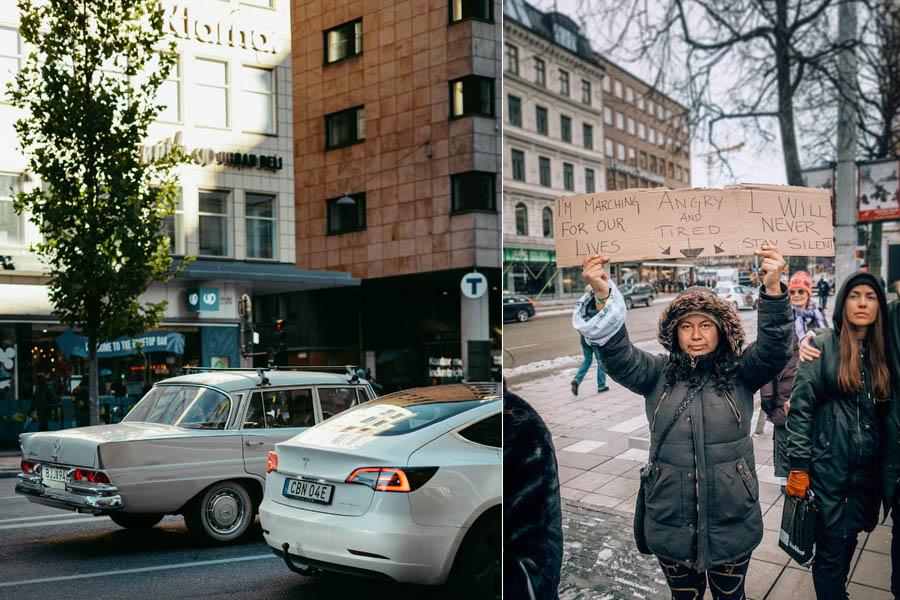
When Tesla entered the Swedish market in 2013, it highly likely didn't anticipate the complex web of challenges it would face. Renowned for its pioneering electric vehicles, Tesla found itself embroiled in a battle that transcends mere labor disputes. The clash with Swedish unions has become a litmus test for the country's cherished collective bargaining model, pitting the global giant against the powerful labor force of a nation that holds workers' rights in high regard.
Tesla in Sweden: Environmental Appeal and Labor Tensions
Tesla's environmentally friendly approach to transportation resonated with Sweden's environmentally conscious population. The Model Y even claimed the title of Sweden's best-selling car last year. Despite not manufacturing vehicles in the country, Tesla employs around 300 people to service its cars, creating a significant presence in the Swedish workforce.
Union Power and Collective Bargaining in Sweden
While Sweden might not be known for left-wing militancy, its unions wield substantial power. The country's unique collective bargaining model covers approximately 90% of its workforce. As Tesla's operations expanded, calls for adhering to Swedish labor practices intensified. The conflict escalated when the prominent union, if Metall, sought to negotiate a collective agreement with Tesla, a move the company resisted.
The Stakes: More Than a Mechanics' Strike
What might appear as a small strike by Tesla mechanics holds greater significance for many Swedes. It's not merely about working conditions but a test of whether Sweden can defend its collective bargaining model against foreign companies that defy it. The outcome could influence not just Tesla's operations in Sweden but set a precedent for similar clashes with other international corporations.
Elon Musk's Anti-Union Stance
Tesla's CEO, Elon Musk, has been vocal about his opposition to unions, viewing them unfavorably. This Swedish standoff becomes crucial in the context of Musk's stance, as Tesla remains one of the few major American car manufacturers with a union-free domestic workforce. The resolution of this dispute could have far-reaching implications for Tesla's international labor relations.
Swedish Public Opinion and Union Strength
Polls indicate that most Swedes support the striking mechanics, showcasing solidarity with the if Metall union. The union's considerable strength, with over 300,000 members, gives it the financial capacity to sustain the strike for an extended period. The conflict represents a struggle not just for workers' rights at Tesla but a broader defense of the Swedish collective bargaining system. Tesla's decision to bring in strikebreakers, an uncommon move in Sweden, triggered a swift and united response from various unions. Electricians, postal workers, dock workers, and transport workers joined forces against Tesla, showcasing the potency of Sweden's collective action mechanisms. The escalation, including workers in neighboring Nordic countries refusing to handle Tesla products bound for Sweden, adds to the stakes.
Uncertain Endgame: Tesla's Options
As the standoff continues, Tesla faces critical decisions. The company could choose to yield to if Metall's demand for a collective agreement, explore subcontracting arrangements, or even contemplate exiting the Swedish market altogether. The repercussions of these choices extend beyond Tesla's immediate future, potentially impacting its global image.
The clash between Tesla and Swedish unions transcends the boundaries of a mechanics' strike. It symbolizes a broader struggle between a global corporation's practices and a nation's commitment to its unique collective bargaining model. As the drama unfolds in Sweden, the world watches to see whether the outcome will reshape Tesla's labor relations internationally and influence the fate of collective bargaining in the global corporate landscape.